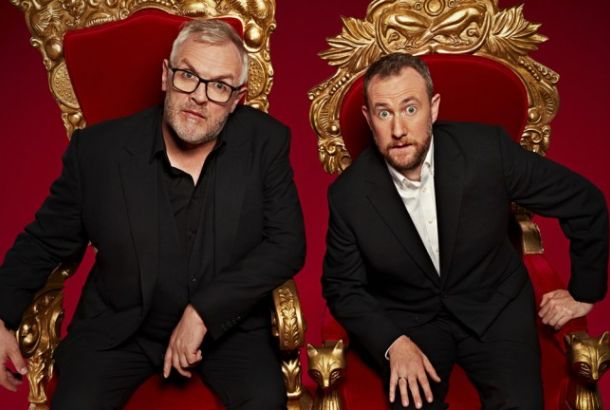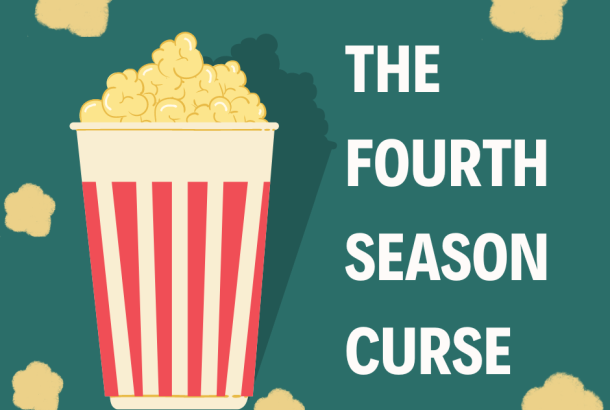Everything Now review: A coming-of-age TV show set on not conforming

Neflix’s new coming-of-age TV show follows Mia Polanco (Sophia Wilde), a 16-year-old who has just been released from inpatient care and is doing fine. As she keeps telling everyone.
Trigger Warning: Discusses of eating disorders.
Despite agreeing to “take it easy,” as per the advice of her doctor (Stephen Fry), Mia quickly becomes aware of how much life she has missed out on whilst in recovery, and sets her sights on catching up with her peers. Armed with her friends, family, and Prozac, she formulates a bucket list of activities to help her get up to speed with her classmates.
Whilst the idea of a coming-of-age story featuring a bucket list as part of its premise is far from an original one, Everything Now’s pull lies not in its concept but in its execution. The bucket list is important to Mia, but narratively it takes a back seat in favour of exploring the relationships between the characters that are the heart of the show. Mia’s friends and family often say the wrong thing, leaving both Mia and the audience wincing at how insensitive they’re being, but their commitment to supporting Mia is a testament to their care for her.
Mia is portrayed sympathetically and realistically, but the narrative doesn’t hold back on criticising some of her choices – through the exploration of her relationships with friends and family, the show displays the multitude of ways that Mia’s anorexia affects not only her but the people in her life. Friendships are tested, familial relations strained, and when one of the later episodes follows the point of view of Mia’s brother Alex (Sam Reuben), the audience sees the extent of her selfishness and abrasiveness without the cushion of an internal monologue to justify her actions.
Throughout the show, Mia’s anorexia is handled with nuance: her struggles and triumphs exemplify how recovery is never linear. Flashbacks to her time in treatment reveal how far she has progressed, but also emphasise how her plan to jump headfirst back into life immediately is not conducive to her recovery. The show never shies away from portraying the truth of anorexia, and refuses to romanticise the harmful effects on Mia or the people around her, as some Netflix shows – 2017’s To the Bone, for example – have done.
One of the most refreshing things about the show is that it doesn’t see itself as a specifically Queer Teen Drama, but rather a drama featuring queer teens. Ripley Parker, the show’s creator, acknowledges this fluidity, commenting that the characters “are continually evolving and nobody is tied to one thing.” The characters drift through relationships and crushes, never having to announce themselves to the audience, or each other. Instead, this underlying acceptance of identity allows more time to be spent on their relationships, romantic and platonic. However, at times this focus on the characters’ relationships leaves some of Mia’s friends somewhat underdeveloped: two of Mia’s best friends Becca (Lauryn Ajufo) and Cam (Harry Cadby) have interesting family lives that are briefly alluded to but never explored in depth, due to their storylines being focused almost exclusively on their romantic relationships.
Everything Now is a show that doesn’t feature the sanitised innocence of Heartstopper, nor does it ever quite reach the grittiness of Skins or Euphoria. It finds a balance, combining a dark through-line of disease with the joy and angst of complicated relationships that are central to adolescence. Similar to Sex Education – whose director worked on two episodes of the show – Everything Now is firmly modern, particularly in its soundtrack and portrayal of teenagers, but it also feels outside of time in a way, partially due to Mia’s doctor-ordered restriction from social media and the internet.
The show centres on a very specific experience, but Mia’s central worry that she’s falling behind in life is widely relatable, adding a sense of universality to the narrative. This, along with the show’s timelessness, and its combination of light and dark themes, adds fluidity to a show that rejects being defined. Everything Now transcends the boundaries of simply being an ‘eating disorder’ show, a ‘queer’ show, a ‘comedy’ or a ‘drama’: instead, it has a little bit of everything.
4/5
Everything Now is streaming on Netflix.
Written by Aisha Allinson
If you’re struggling with the subjects discussed in this article, please reach out.
The Bridge: 0161 820 8010
The London Centre for Eating Disorders: 020 3137 9927
Beat Eating Disorders: Text SHOUT to 85258 (a 24/7 text service run by Beat)







